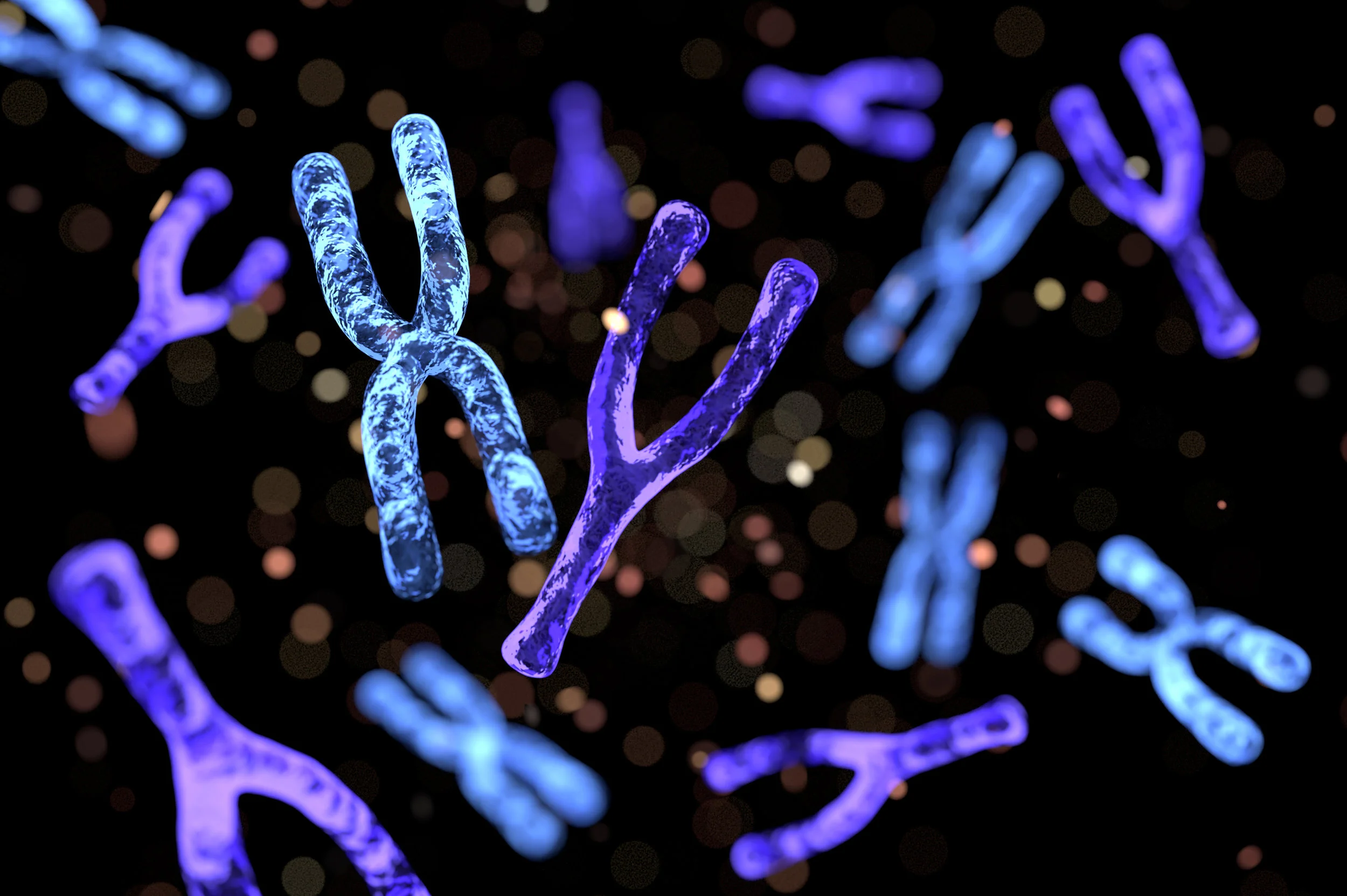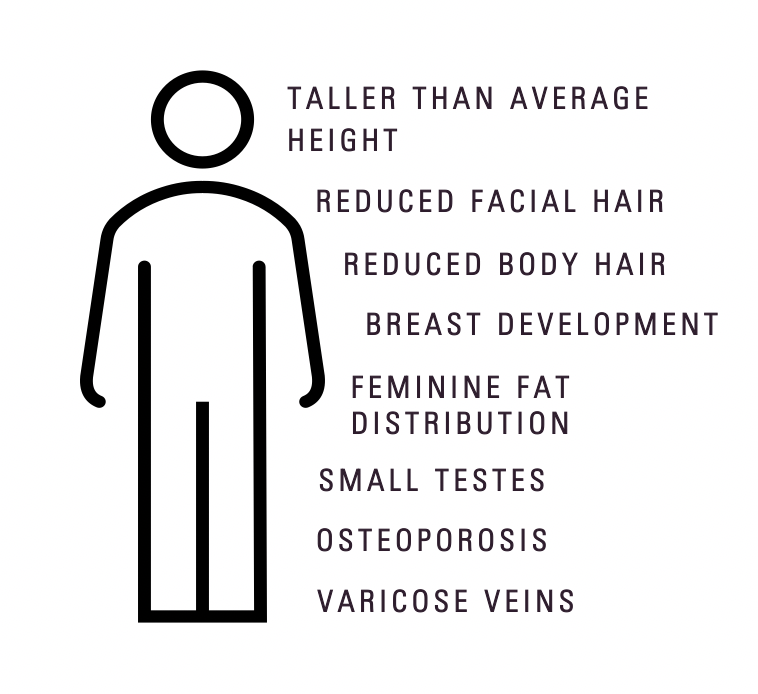What is Klinefelter Syndrome?
Klinefelter syndrome (sometimes called Klinefelter's, KS or XXY) is where boys and men are born with an extra X chromosome.
The exact cause is not known but KS is not inherited / hereditary.
Some of the main signs and symptoms include small and firm testes, reduced testosterone production, subfertility, and issues with intellectual and physical development. These symptoms are not present in all patients and can vary in severity.
KS is diagnosed via blood tests that analyse chromosomes and test hormone function.
There is no cure for KS but there are many treatments available for the problems associated with the condition.
The Klinefelter Syndrome Multi-Specialty clinics are one of the first in the country to address the needs of patients diagnosed with Klinefelter (XXY) Syndrome.
What are the signs and symptoms?
These can be very mild and so it is estimated only 1 in 4 (25%) of children or adults with KS are ever diagnosed.
KS has a varying presentation and many boys and men do not realise they have it.
Patients with KS can have increased risk of developing other health problems including:
Type 2 diabetes
Osteoporosis (fragile bones)
Blood clots
Autoimmune (when your immune system mistakenly “attacks” your body) disorders such as rheumatoid arthritis and systemic lupus erythematosus
Life expectancy is usually normal, and many patients live normal lives.
In addition to problems mentioned above, low testosterone can give a series of symptoms: low energy levels, increased daytime sleepiness, low libido (sex drive), and difficulty concentrating, which can be treated with testosterone supplementation.
People with KS have a small increased risk of breast cancer (note that all men have small amounts of breast tissue) and testicular cancer. Men should check their testicles and chest regularly for the development of any new lumps, and speak to their GP if they are concerned
Do I need any tests to confirm the diagnosis?
The combination of small firm testes and low sperm count (or absence of sperm in semen) indicates KS.
The main investigations are blood tests that will analyse chromosomes and look at hormone function.
Investigations should be carried out to check for other causes of small firm testes and low sperm count.
Currently there is no screening program for KS, although it may be picked up prenatally (before birth) as part of screening for other chromosome abnormalities.
What are the treatments available?
There are a range of treatments available for KS including Testosterone Replacement Therapy, Fertility treatments, Endocrine (hormone) Management, and many more.
Please click here for more information about treatments involved in the management of KS.
The Science behind KS
Klinefelter syndrome (sometimes called Klinefelter's, KS or XXY) is where boys and men are born with an extra X chromosome.
Chromosomes are packages of genes found in every cell in the body. Two types of chromosome, called the sex chromosomes, determine the genetic sex of a baby. These are named either X or Y. Usually, a female baby has 2 X chromosomes (XX) and a male has one X and one Y (XY). But in Klinefelter syndrome, a boy is born with an extra copy of the X chromosome (XXY).
For a diagram of a chromosome, click here.
The X chromosome is not a "female" chromosome and is present in everyone. The presence of a Y chromosome denotes male sex. Boys and men with Klinefelter syndrome are still genetically male, and often will not realise they have this extra chromosome, but occasionally it can cause problems that may require treatment. Klinefelter syndrome affects around 1 in every 660 males.
Some men with features of KS may only carry the extra X chromosome in some of their cells, with the remaining cells being XY. These individuals have mosaic Klinefelter Syndrome (46,XY/47,XXY). Those with mosaic KS may have milder signs and symptoms, depending on how many of their cells carry the extra X chromosome. Some KS patients may also carry additional X chromosomes such as (48,XXXY) and (49,XXXY), and generally experience more severe signs and symptoms of the syndrome.
The exact cause of the condition is not known, although there is a slightly increased risk in babies born to older mothers. KS is not an inherited (from your parents) condition, but is the result of an error during the development of reproductive cells (eggs and sperm) from the patient’s parents before forming the embryo.

